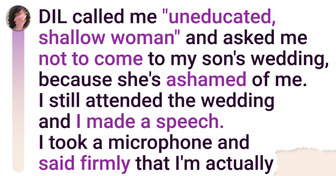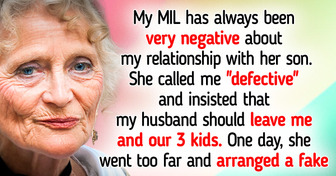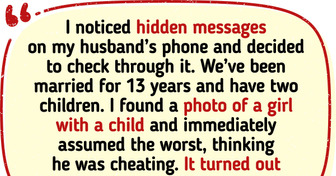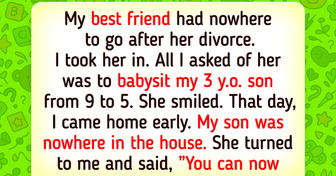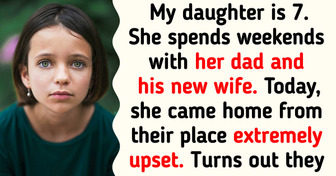what would you say my name was?

Picking a baby’s name is one of the first big decisions parents have to make. And it turns out that choosing this lifetime “tag” for your child warrants deep thought because, according to one study, names can determine what a person will look like in adulthood.
We at Bright Side found the results of this research to be quite interesting, so we summarized several points that explain how names can shape facial features.
“There is something about an Emily that... just looks like an Emily,” according to associate professor Anne-Laure Sellier, who was part of the research team.
This was proven by their experiment with French and Israeli participants, who were shown random ID photos, then asked to choose which they thought was the person’s true name from 4 given options.
According to the laws of chance, the subjects will guess correctly about 25 percent of the time. But the respondents got the names right at a rate of 25 to 40 percent. These results imply that there’s something about our faces that give our names away.
To further test this theory, researchers had a computer analysis of the faces of over 94,000 individuals, to see if it could also match the photos with the right names. The machine did better than the human volunteers, choosing correctly at a rate of 54 to 64 percent.
The image above is a depiction of the “heat map,” which their computer algorithm produced. The map highlighted the facial components that served as clues for determining the person’s name.
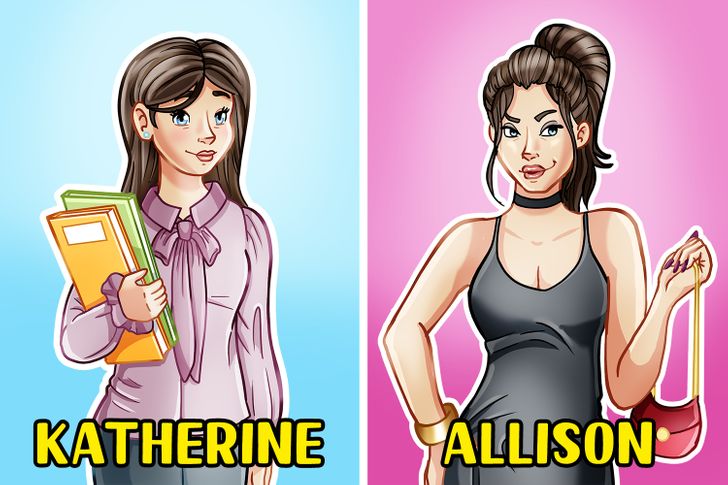
The team speculates that respondents were able to guess correctly because of the stereotypes attached to each name.
According to Sellier’s example, “Katherine” sounds like the name of a good student, while “Allison” seems like it belongs to someone mischievous.
The social attitude toward a certain moniker could influence the name holder’s perception of what he or she should look like, which is similar to the concept of a self-fulfilling prophecy.
According to the study, when the public has a notion of what a certain name looks like — let’s say “Tom” — people with the same name may unconsciously mimic those traits.
The practice of altering one’s physical structure, for the sake of association, traces its roots back to the ancient Peruvians. Tribe members used to bind the skulls of infants, in order to achieve a shape that was identified with their group.
Sellier says that what we wear, how we do our hair, or even the tattoos we get, are all part of the effort to emphasize our affiliations.
We might associate the name “Jennifer” with someone blonde, and that’s probably because that is the hairstyle of some of the famous “Jennifers” we know.
In one test, researchers cut out the face and made people guess the names just by looking at the hair. And the respondents were still able to choose correctly. Researchers believe that this is because hair is one of the easiest things people can control if they want to copy a certain look.
The sound of the name could also be an important factor. For example, the name “Bob” has a rounder sound, so it’s usually linked with a rounder face as well.
The team found that when it came to people who used exclusive or one-of-a-kind nicknames — for example, a “Charlotte” goes by “Chachou” — the face-name matches were weaker.
They hypothesize that this is because unique monikers don’t have any stereotypes attached to them, so the pressure for the person to fit into a certain mold disappears.
The researchers also discovered that when people looked at photos of individuals outside of their culture, there were fewer chances of identifying the correct name.
For example, when the French respondents were shown the Israeli photos, and the other way around, they were not able to pinpoint the names as accurately as they did with individuals from their own countries.
What are your thoughts about the theory that names can influence our physical appearance? Do you think you look like your name?
what would you say my name was?

Fatma
obviously it's on the top of my pic lol
😅 I was wondering if it's a nickname
unfortunately not haha x
my name means the sun in Hindi, but I don't know if my personality matches it
maybe it's supposed to mean that you're a cheerful person who brings happiness to others?
I hope so but you probably need to ask my friends if they can prove that haha
Me who click the article just because it had Emma Watson’s face on it : oh so it’s not about Emma Watson. 😅😅





